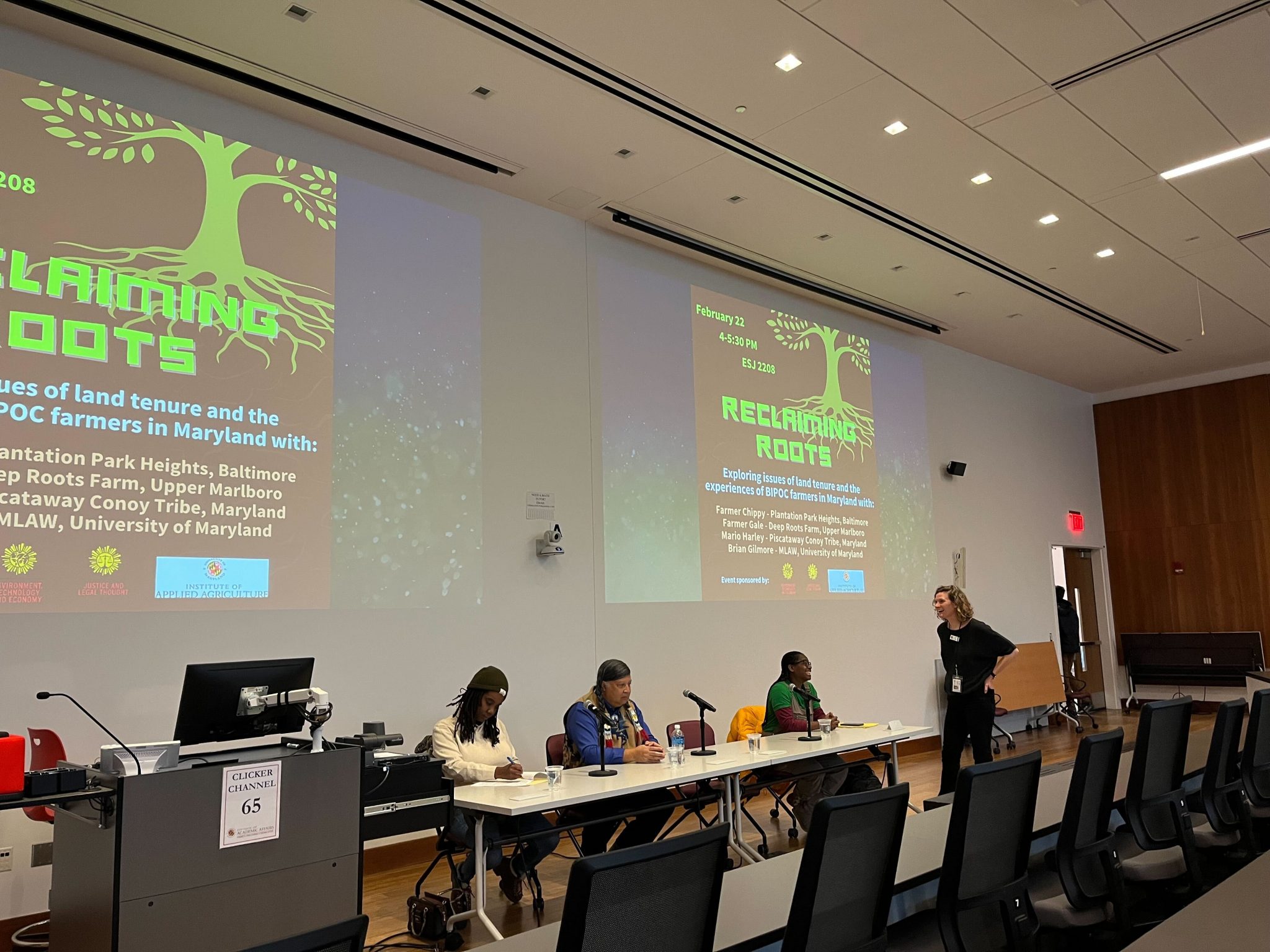By Fiona Flowers
For The Diamondback
Panelists discussed land tenure, sustainability and food production at an event Thursday showcasing the experiences of farmers in Maryland who are Black, indigenous and people of color.
“Reclaiming Roots,” a forum sponsored by the University of Maryland’s Institute of Applied Agriculture, featured four speakers who discussed how culture intertwines with the environment and emphasized the need for equitable and sustainable food systems. The event was part of this university’s celebration of Black Climate Week, a part of Black History Month that highlights Black people’s contributions to climate solutions and environmental justice work.
Tiara Matthews, the president of Plantation Park Heights Urban Farm in Baltimore, spoke at the event about how urban farming in Baltimore City transformed her community.
Matthews said Plantation Park Heights has partnered with programs at Coppin State University, Morgan State University and Cornell University to maximize opportunities for young farmers to explore urban agriculture. These partnerships help refine participants’ financial literacy, mental health and professional aspirations, she added.
“Once we started growing, we started seeing violence breaking down,” she said. “This is to encourage the next generation of leaders.”
[UMD entomology department set to study rare cicada emergence]
Mario Harley, a member of the Piscataway Conoy Tribe, shared his perspective on land ownership. Preserving and cultivating the natural environment aligns with the values of his ancestors, who viewed the earth as a maternal provider of life, he said.
“We do not own the land. We are a part of the land,” he said. “Earth Mother provides us with everything we need to survive … and it’s our responsibility as two-leggeds not to have dominion over the natural world, but understand we are a part of the natural world.”
Harley said natural agriculture is ingrained in the human experience. Prioritizing economic growth at the expense of respect for land isn’t beneficial to the earth, he said.
Harley and other speakers emphasized the importance of community and local farmers, encouraging attendees to familiarize themselves with natural food systems and learn how multicultural perspectives shape sustainable agriculture.
[Prince George’s County gets its first weather monitoring station]
Another speaker, Gale Livingstone, said she was a former federal government consultant and contractor before a traumatic car accident led her to reignite her relationship with gardening and farming. These activities provided her the opportunity to heal physically and mentally. According to her website, Livingstone established Deep Roots Farm in Prince George’s County in 2018 with a goal of educating aspiring farmers and serving her community.
The farm is Black-woman-owned, according to its website, and focuses on a holistic farming approach that considers social, economic and environmental impacts.
“That connection [to nature], I believe we all do share and need to plug into that on a more frequent basis,” she said. “I think setting our phones aside and turning off the television or getting off the computers and exploring that part of our world can really help us all to heal and be better humans and better citizens of the community.”
Livingstone, who is from Guyana, emphasized the connection between culture, sustainability and farming. On her farm, she grows crops she grew up eating in Guyana, such as long beans and okra. She hopes to spread her heritage through the exchange of food, she said.
“Part of what I see my role as, as a farmer, is educating the consumer,” Livingstone said. “I try to do as much education as we can so that folks get an understanding and somewhat of an open mind.”



